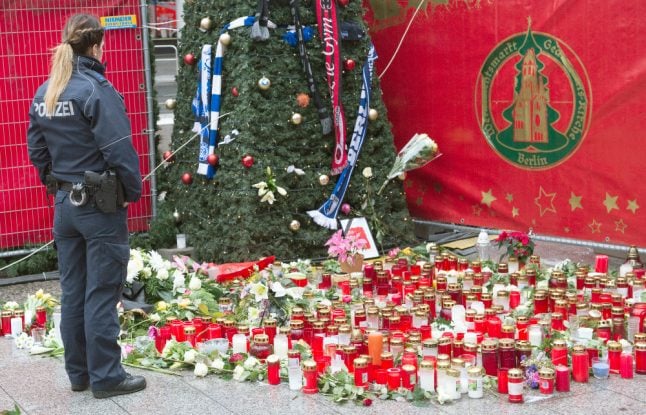The Bundestag (German parliament) control committee is holding a special meeting on Monday afternoon behind closed doors to discuss a report by the Federal Criminal Police Office (BKA), according to DPA information.
The report contains a chronological account of the knowledge gathered by security agencies in the past year about the main Berlin attack suspect, Anis Amri, who was killed in a shootout with police in Italy.
Amri, who on December 19th killed a Polish truck driver and used the vehicle to plow into a crowded Christmas market, had been investigated by intelligence services in the state of North Rhine-Westphalia on suspicion of planning a terror plot. He had been categorized as a security threat.
But when he moved to Berlin in February 2016, a lack of communication between security services in the two states appears to have contributed to him escaping the attentions of police. He had also been told to leave the country in June 2016, but remained free in the months that Germany tried to get official documents about him from his home country of Tunisia.
Interior Minister Thomas de Maizière is also set to discuss the status of the investigation into the attack in a closed meeting on Wednesday with the Bundestag interior affairs committee.
There are still many questions left unanswered, including Amri’s background, whether he had any helpers, and how he fled after the attack. Amri was able to evade capture for three days as he travelled by train through France to Italy.
Some media outlets have already reported further details from government investigators, including that Amri was dealing and consuming drugs in Berlin, and Die Welt reported that Amri had been largely financed through drug business.
Public broadcasters WDR and NDR with newspaper the Süddeutsche Zeitung reported that the BKA report reveals that together, North Rhine-Westphalia, Berlin and the BKA had around 60 reports on Amri between October 27th 2015 and December 14th 2016.
According to the media reports. Amri not only said that he wanted to commit an attack in Germany, but he had also expressed the desire to return to Tunisia. He had also been neglecting his religious obligations.
The media outlets also report that Italian security agencies clarified Amri’s identity to their German colleagues and sent photos, explaining that he had been imprisoned in Italy for four years. In Germany, Amri used numerous fake identities. It has still not been confirmed if and when Italian authorities informed Germany.
Now there are calls from within the Bundestag to launch an investigative committee into the case, though some have also called for having a special investigator to report to parliament.
Since the attack, top ministers have presented plans for reforming security and intelligence operations, including tracking potentially violent extremists with ankle monitors, and tighter restrictions for those who are caught lying about their identities.



 Please whitelist us to continue reading.
Please whitelist us to continue reading.